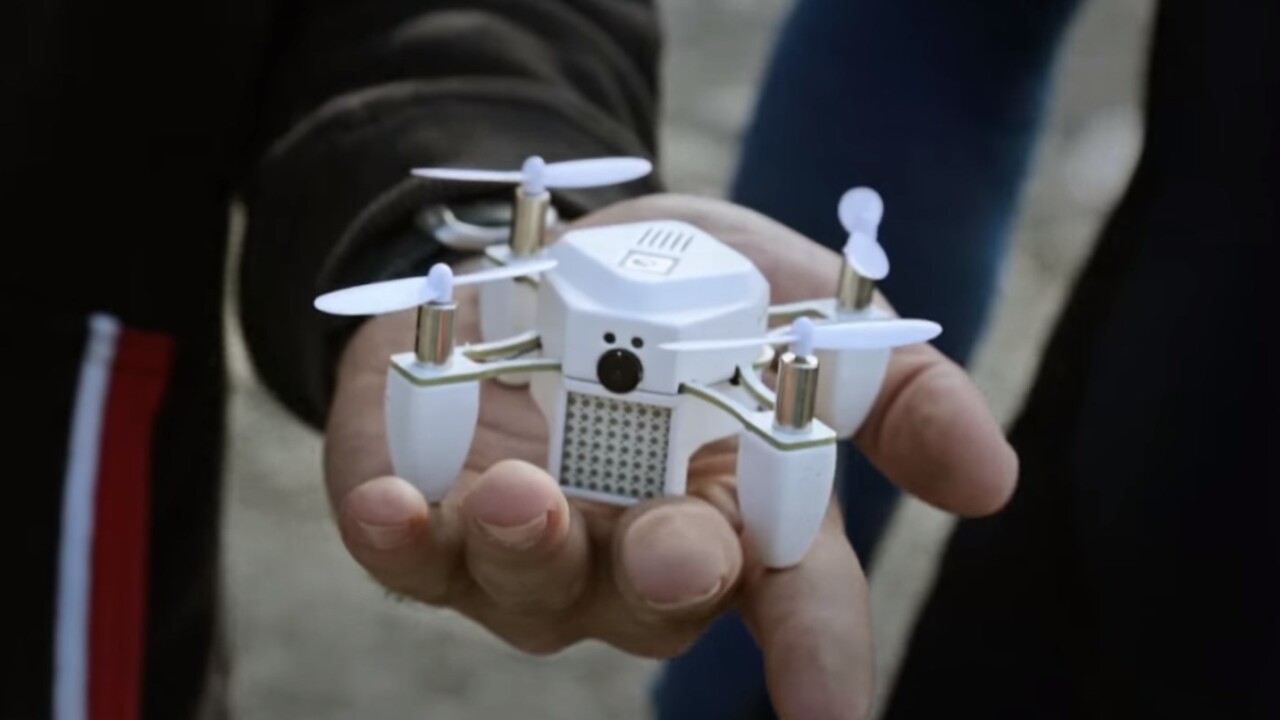
Last November, Torquing Group’s Kickstarter campaign to crowdfund a palm-sized autonomous drone crashed and burned after raising $3.5 million from more than 12,000 backers.
Kickstarter, which listed the Zano drone as a ‘staff pick’, commissioned freelance tech journalist Mark Harris to investigate the matter. Harris has now published a 13,000-word report on his findings.
In short, Torquing Group CEO Ivan Reedman and his crew simply didn’t have the chops to build a drone with all the functionality they envisioned it could have — and certainly not within the time frame they had set for themselves.
Reedman confirmed that the video shown on the Zano campaign page demonstrated features that were not fully operational at the time it was shot.
According to Harris, the team made a serious effort to develop and deliver the product they promised, but “a dangerous lack of self-awareness of the problems the company was making for itself” became evident in its communications to backers.
Is there a future for Zano? Reedman said, “If somebody comes in and buys all the intellectual property and continues the project, or if it goes down open source route, that would be absolutely fantastic. I’d be the first person to put my hand up to be a contributor.”
Entrepreneur Alex Mühlhölzl think there’s another opportunity here. He’s hoping to create a Zano card game that will essentially be “A mockumentary of the business.“ “[It will have] things like fund raising, spin doctoring, ordering the wrong parts, staff fleeing and liquidators, in card form,” he said.
Zano isn’t the first crowdfunding campaign to go bust, and it certainly won’t be the last. That’s important for backers to bear in mind, but there are also many lessons for Kickstarter to learn from this.
Harris noted that crowdfunding platforms need to rethink the way they handle projects involving complex hardware, overfunding, or large sums of money.
“There should be better mechanisms to identify weak projects before they fund, as well as new processes to provide mentorship, support and expert advice to newly-funded projects,” Harris added.
But Kickstarter co-founder Yancey Strickler believes that ultimately, backers need to realize that it is up to them to evaluate a project and accept the risk that comes with backing crowdfunding campaigns. “If you want 100% success with hardware and new products, I think the only solution is that you just shop on Amazon,” he said.
There’s certainly some truth to that. Backing a crowdfunding campaign is very much like investing in a company, and sometimes things don’t pan out as people plan and hope.
We’ve accepted that idea when it comes to the stock market, but seem to have trouble doing so when pledging funds to a new gadget or service. But it doesn’t mean that crowdfunding platforms can’t do more to vet major campaigns more stringently.
➤ How Zano Raised Millions on Kickstarter and Left Most Backers with Nothing [Mark Harris / Medium]
Get the TNW newsletter
Get the most important tech news in your inbox each week.




